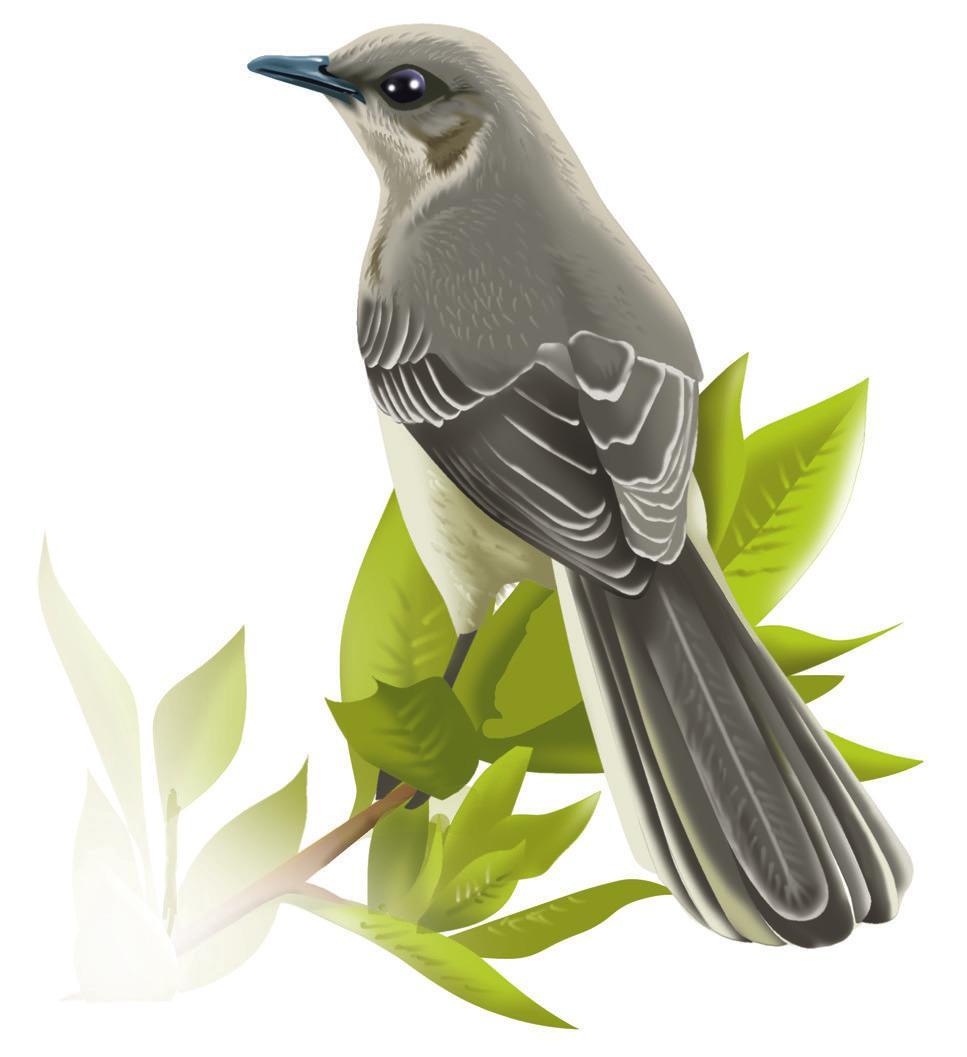
Five states have named the northern mockingbird their State Bird.
Graphic from Metro Creative

Exploring Nature:
People choose state birds for all sorts of reasons. It started in the 1920s and many states eventually chose the same bird.
Most popular was the northern cardinal, picked by seven states; next was the western meadowlark, picked by six states.
The state bird of Texas, the northern mockingbird, is honored by five states.
But if birds were picked on the basis of abundance, a whole new roster of state birds would result. Florida, for example, hosts 100 percent of the global population of the Florida scrub jay. Yet, the Florida state bird is the northern mockingbird.
Similarly, Maine’s state bird is the nonspecific “chickadee,” leaving in doubt if it is the blackcapped or the boreal chickadee, both of which are found in the state. Based strictly on population density during breeding season, the black-throated green warbler would be the logical choice.
Let us consider the states claiming the northern mockingbird as the state bird — Arkansas, Tennessee, Mississippi, Florida and Texas. If the choice was based on which birds are most uniquely abundant, the lineup would change drastically.
Arkansas would adopt the Kentucky warbler, because 14 percent of the global population of this bird breeds in Arkansas. Of course, it would be hard to identify with a bird named for a different state.
Tennessee would change to the prairie warbler based on population density of over 10 percent.
Mississippi would adopt the hooded warbler since fully 14 percent of the global population breeds in that state — highest of any state.
Florida would ditch the northern mockingbird and switch to the Florida scrub jay, because 100 percent of the global population occurs in Florida year-round.
And that leaves Texas Our proud state would change to the golden- cheeked warbler. Easy to see why — fully 100 percent of the global population breeds in Texas. Our state bird would be truly unique.
Is it gonna happen? I doubt it seriously. But it is fun to think about.











